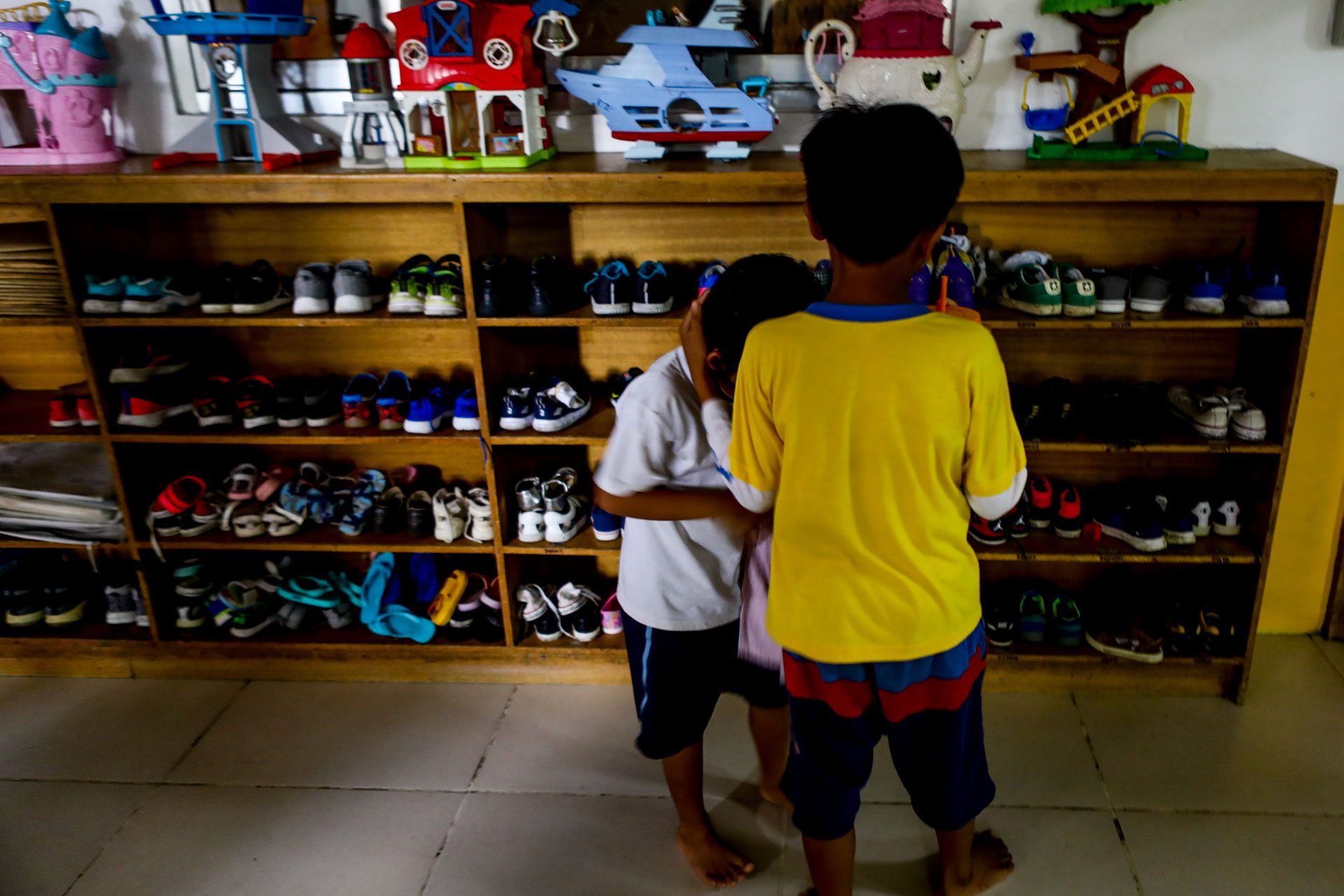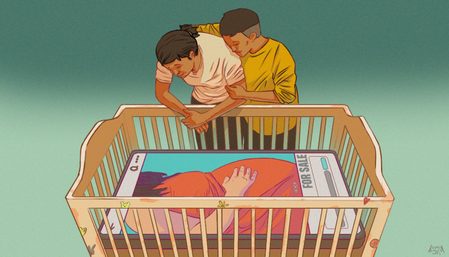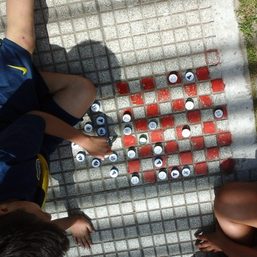SUMMARY
This is AI generated summarization, which may have errors. For context, always refer to the full article.

MANILA, Philippines – The Department of Social Welfare and Development (DSWD) is looking to establish a central database for children who are up for adoption, whether they are in public or private facilities.
Social Welfare Secretary Rex Gatchalian brought up the plan in a Senate women, children, family relations, and gender equality committee hearing on Thursday, October 26, as the panel sought updates on the cease and desist order the DSWD issued against orphanage Gentle Hands Incorporated (GHI) in May.
“For every child that goes into the system, whether it’s in a public care facility or a private care facility… we should be able to track down where they are nationwide,” said Gatchalian, adding that the database could even include senior citizens or other vulnerable individuals put into social facilities.
One of the issues that hounded the sudden pullout of children from GHI’s Quezon City facility, apart from issues of psychological preparedness, was how the children’s records were not immediately turned over to them.
Noemi Labaydan, a social worker from DSWD facility Nayon ng Kabataan (Youth Village), said in the Senate hearing that the facility has received from GHI 56 case files so far of the 86 children turned over from the latter’s facility. Thirty case files remain to be turned over to Nayon, which took in majority of the 128 children removed from Gentle Hands.
Gatchalian said that at present, the DSWD and care facilities have their own respective databases and systems, and that there was no central database that managed every child in the Philippine adoption system.
“What we envisioned is for every child that comes in, that child should be placed into the database, updates to their case management file should be updated, so that when things like this erupt, the manual push and pull of those case folders need not happen,” said Gathalian.
Administrative issues
DSWD Undersecretary Janella Estrada, who leads the National Authority for Child Care (NACC), noted the present discrepancy in numbers of prospective adoptive parents (PAPs) and children getting adopted. From January 2022 to September 2023, 572 applications were approved for PAPs, but only 212 PAPs were matched with eligible children.
Gatchalian said that there was an issue with accreditation of private care facilities, which led to a surplus of adoptive parents with a limited pool of children for adoption.
He explained that the accreditation process for programs stayed with the DSWD, when it should be with the NACC, which handles child adoptions. The lack of an explicit policy to have adoption facilities accredited by the NACC causes some facilities to be lax, he explained.
“There are so many children aging out in our care facilities… There is a backlog of Pinoy families who are looking to adopt, but the pool where they can draw has dried up, and there are many that have not been accredited. So, that’s a gap that we will address through executive action, because the law already explicitly said that and we’re going to empower that,” said Gatchalian.
The secretary said that the department hopes to come out with the memorandum circular explicitly requiring NACC accreditation for care facilities in the first quarter of 2024.
Gentle Hands kids now
Months since the emotional pullout from Gentle Hands, the children referred to Nayon ng Kabataan have adjusted well in their new facility, social worker Labaydan said.
“Well-adjusted sila sa routine na mayroon sila sa center… Nakakapag-adapt sila sa ginagawa namin sa center,” said Labaydan. (They are well-adjusted in their routine at the center. They have adapted to what we’re doing at the center.)
Labaydan said the children have enrolled in formal school and are engaged in skills training. Ten of them have completed training and received certificates in skills like baking and sewing.
The children, many of whom spoke English at Gentle Hands in preparation for international adoptions, also began to learn and speak Filipino in their new facility, and familiarize themselves with Philippine customs, like flag-raising ceremonies.
Meanwhile, GHI continues to attend administrative meetings with the DSWD and remedy building-related issues that caused the revocation of the facility’s fire safety certificate. – Rappler.com
Add a comment
How does this make you feel?


![[OPINYON] Diborsiyo sa mata ng isang anak](https://www.rappler.com/tachyon/2024/06/new-school-divorce-children-june-13-2024.jpg?resize=257%2C257&crop=294px%2C0px%2C720px%2C720px)








There are no comments yet. Add your comment to start the conversation.